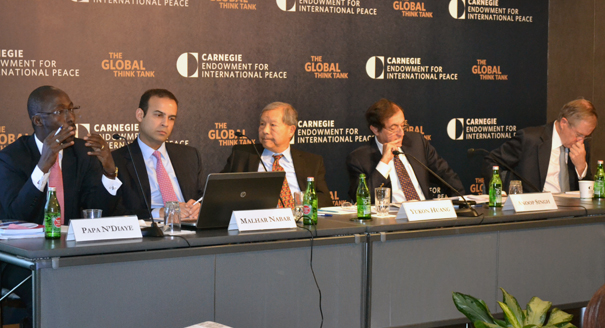Registration
You will receive an email confirming your registration.
Much has been made of China’s recent internal and external rebalancing. Though China’s current account surplus has shrunk significantly, the predicted shift toward consumption-fueled growth has not occurred. Instead, recent growth has relied on increasing investment, which leaves questions regarding the sustainability of the current model.
Papa N'Diaye, Malhar Nabar, and Anoop Singh discussed the findings of the IMF's new study on China’s rebalancing, and what it means for China’s future policy choices. Nicholas R. Lardy offered comments, and Yukon Huang moderated and offered comments.
Anoop Singh
Anoop Singh is director of the Asia and Pacific Deparment at the IMF.
Malhar Nabar
Malhar Nabar is a senior economist in the IMF’s Asia and Pacific Department, covering China and Hong Kong Special Administrative Region.
Papa N'Diaye
Papa N'Diaye is deputy division chief in the IMF’s Strategy, Policy, and Review Department.
Nicholas R. Lardy
Nicholas R. Lardy is the Anthony M. Solomon senior fellow at the Peterson Institute for International Economics where he researches Asia, China, and transition economies.
Yukon Huang
Yukon Huang is a senior associate in the Carnegie Asia Program, where his research focuses on China’s economic development and its impact on Asia and the global economy.
